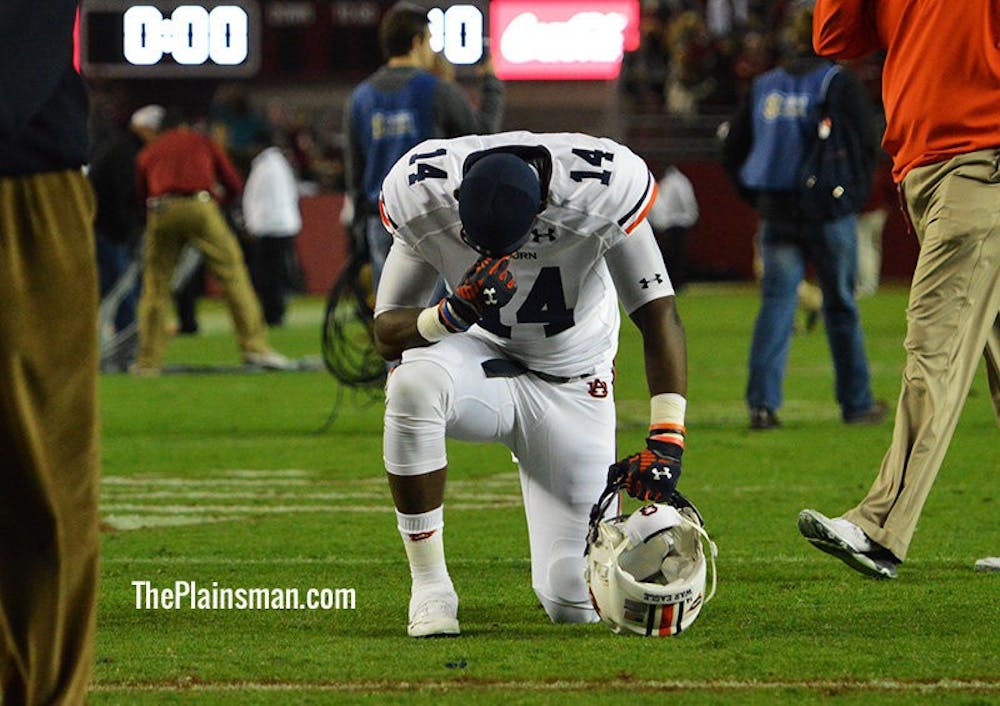Auburn University's sustainability efforts received a "C" on the 2010 Sustainability Report Card.
Auburn received a "D" for its sustainability in 2008 and a "B" average in 2009. But the University dropped to a "C" average in 2010.
The report cards were released Oct. 7, which included 332 colleges in all 50 states and Canada.
The purpose of this green report card is to identify colleges and universities that are leading with regard to sustainability efforts, according to www.greenreportcard.com.
"Ultimately, that's about where we are," said Matthew Williams, program director of the Office of Sustainability. "I believe we have done a lot of good things, but we have a good bit of a way to go."
College Sustainability Report Card Web site defines sustainability as meeting the needs of the present without compromising the ability of future generations to meet their own needs.
"It's disheartening, we're doing all of this stuff and working really hard," said Scott Russell, president of Environmental Awareness Organization. "We feel like we are improving to standards, obviously we are not perfect and there is a laundry list of things to improve on, but we have incorporated a lot of new things into our building, global warming and research."
The report card is an evaluation of campus and endowment sustainability activities at colleges and universities that aims to provide accessible information for schools to learn from each others' experiences and establish more effective sustainability policies, according to www.greenreportcard.com.
"The grade is kind of subjective I think," said Austin Greenwalt, a senior in finance. "It comes down to what every person does on campus, and it is hard to tell if an entire campus is sustainable just by one ranking."
Surveys and data from each of the participating schools were collected from summer 2009 for six sections: campus management, administration, climate change and energy, food and recycling, green building and transportation.
A campus survey covering the categories of administration, climate change and energy, green building, student involvement and transportation was one of four surveys sent to each school.
Other surveys included a dining services survey covering the food and recycling category, an endowment survey covering the endowment transparency, investment priorities and shareholder engagement categories and a student survey focusing on the activities of campus environmental and sustainability groups.
"They changed the way they calculated the grades between the years," Williams said. "This is the third year we've been involved and we don't even know in some categories how we were scored exactly."
The grade each school received was calculated by numerical points each school earned in proportion to its policies and practices for the indicators in each category, according to the green report Web site.
The grades were based on certain characteristics.
If a school earned at least 70 percent of credit for those categories it earned an "A." It took 50 percent to earn a "B," 30 percent to earn a "C" and 10 percent to earn a "D."
The nine equally weighted category grades were totaled to calculate a grade point average on a 4.0 scale.
The GPA was then translated into an overall sustainability grade, ranging from "A" to "F," using a standard grading scale.
"The grading is a tough and inexact science," Williams said.
There were nine categories that received grades.
"The schools are chosen because they are doing something, so even a failing grade is better than not doing anything at all," Williams said. "We are getting more and more sustainable."
Auburn has numerous projects in the works for the campus and the community from working on providing layouts to show how green a building is, to ideas for better and more convenient transportation, Williams said.
Do you like this story? The Plainsman doesn't accept money from tuition or student fees, and we don't charge a subscription fee. But you can donate to support The Plainsman.





